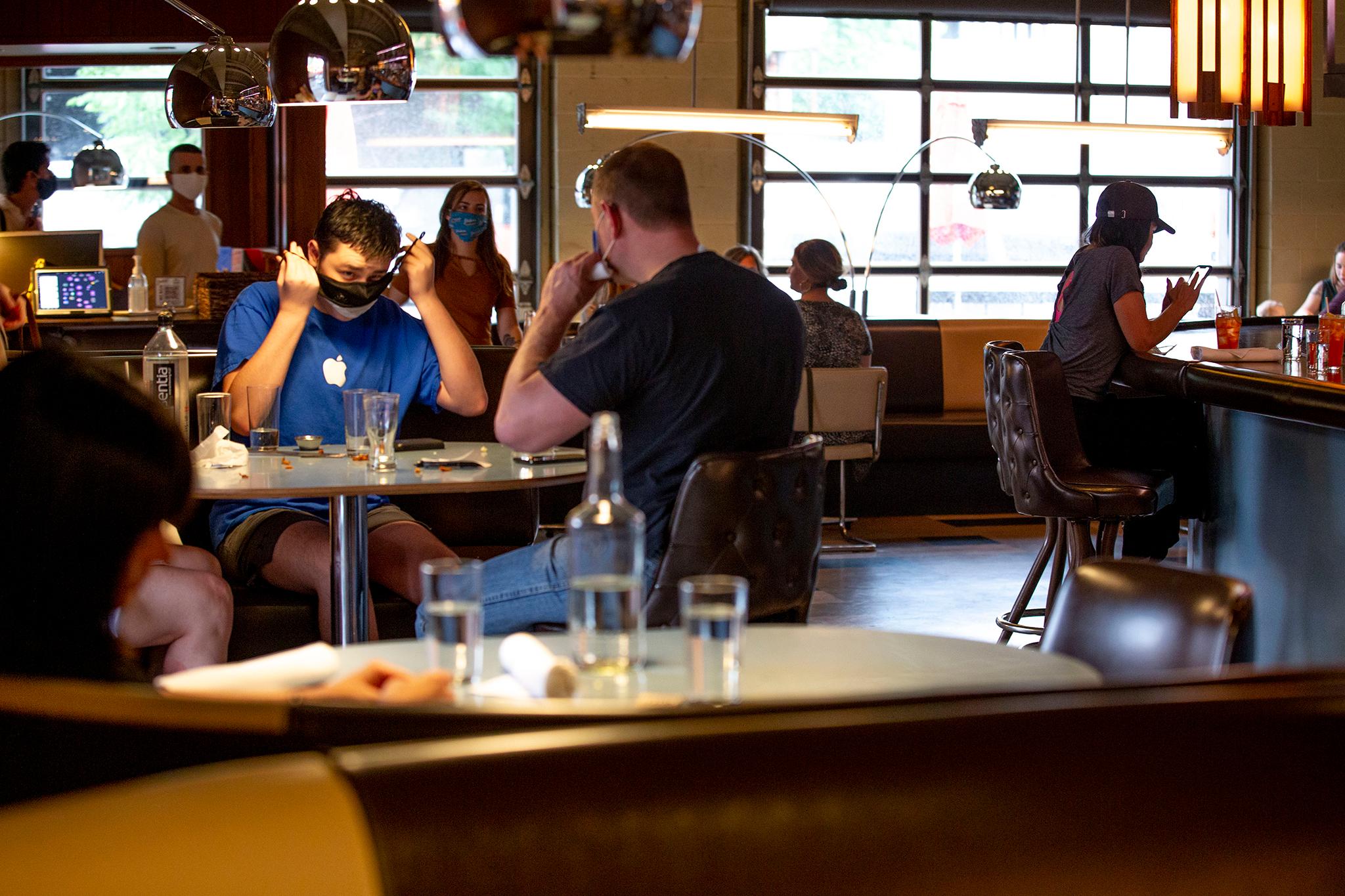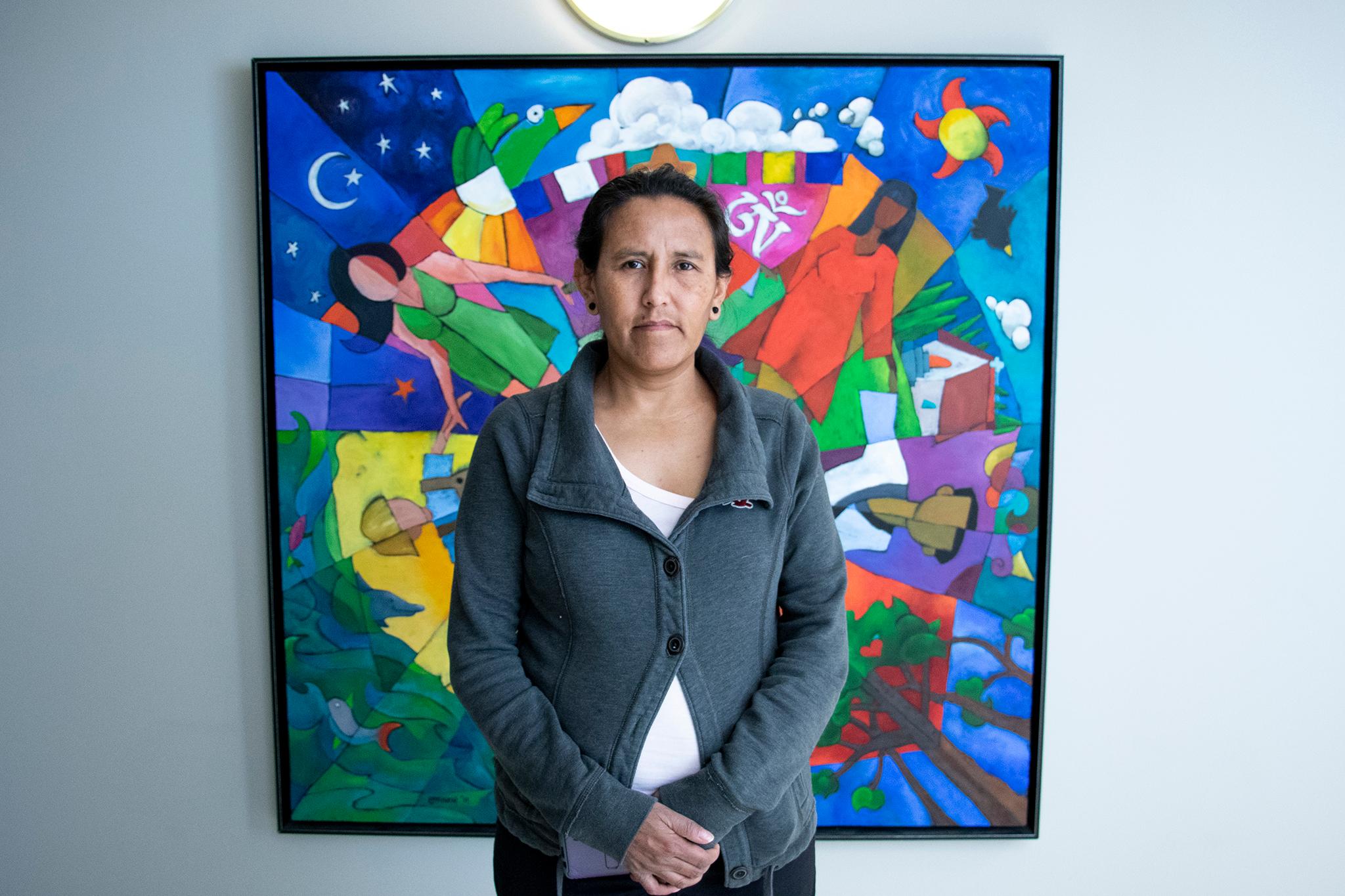
People across Colorado are searching for jobs, cutting costs and weighing the health risks of a return to work as unemployment benefits are set to shrink dramatically.
For the last three months, in response to the coronavirus pandemic and the unprecedented economic disruption it’s caused, the federal government has boosted unemployment checks by a weekly $600. The emergency supplement is set to expire after this week’s benefits are paid if Congress doesn’t act.
About a quarter-million people in Colorado are receiving the benefit. In Salida, 75-year-old Diana Vassar is afraid to do the math about what comes next.
“I’m trying to be very careful what I spend because I don't know how long I’m going to have to live on that before I can find a job,” Vassar said. “I try not to think that far ahead. I don’t know where I’m going to go.”
Vassar lost her job as a clerk at a gift shop in March. With the emergency benefit, she has collected about $727 a week. Like many lower-income workers, she’s actually received more from unemployment than her job paid.
Her weekly unemployment check now could drop to just $187.
In Colorado, regular unemployment pays roughly half of a person’s normal wages. Even with her social security benefit, that’s not enough to cover the rent on her studio apartment, a car payment and utilities in a mountain town where costs have climbed sharply for years.
The looming change has Vassar on the hunt for a new job — even though she’s in a high-risk group due both to her age and an immune-system issue.
“Obviously I'll be looking for work, but I don’t know exactly how to do that,” Vassar said. “I fall into this weird category of probably shouldn't be working due to my immune system, but don’t really have a choice.”
$130 Million Per Week
The expiration of the Pandemic Unemployment Compensation benefit would mean a huge economic shift for Colorado and other states. The program has paid more than $130 million per week to Colorado recipients, making up about half the value of all unemployment benefits. The state’s unemployment rate currently stands at 10.5 percent, more than 2.5 percentage points higher than at the worst point in the Great Recession.
Lawmakers in Washington, D.C. are furiously debating whether to extend the program. Some conservatives and business interests have argued that $600 a week is too generous and that it has discouraged lower-income people from returning to work.
President Donald Trump has suggested he would support a smaller benefit, with some GOP lawmakers arguing for something between $100 and $400 extra. Colorado Democratic Sen. Michael Bennet has proposed linking the extra federal benefit to the unemployment rate.
As things stand now, the $600 won’t be paid for next week or any week afterward. It’s possible that people would get retroactive payments for the missed weeks if Congress eventually renews the program.
Some business owners also have reported difficulties in rehiring workers. The state has received about 3,900 reports of unemployed people refusing job offers, a decision that can result in losing benefits.
Disincentive Or Not?
At Monarch Casino & Resort in Black Hawk, a job fair to fill 400 open positions drew just 60 people.
“Frankly the most glaring (reason for low turnout at the job fair) is that people are still getting the federal unemployment benefit, and they can afford to not work,” said chief operating officer David Farahi, though he acknowledged that virus fears and a lack of child care are keeping workers home too.
Labor advocates have said it’s a sign that companies should pay better wages. The $600 supplement has had the biggest effect on people in lower-wage and part-time jobs, especially in hospitality and entertainment. But business representatives say raises aren’t always possible during a turbulent economic crisis.
The higher unemployment benefits have "caused challenges in bringing back staff to many industries including restaurants," wrote Sonia Riggs, CEO of the Colorado Restaurant Association, in an email. Restaurants are "desperate for cash," but some have offered hazard pay and health benefits to get employees back, she added.
Still, there's the looming question of whether workers can actually find jobs as the benefits expire. The nation had roughly 13 million fewer jobs in June that it had a year prior, despite a strong employment recovery that month.
Riggs said there's been "a fairly sizable contraction in the number of available positions in (the restaurant) industry, which is also having an impact on hiring." The association's June survey found that half the state's restaurants are in danger of permanently closing within three months.
The Economic Policy Institute, a think tank, has suggested that Congress can create incentives for work without cutting benefits — for example, by allowing people to earn more money while still collecting unemployment.
Corby Andreson, 48, is a video director and producer for live events, meaning his career is on but he said that that won’t last long.
“I have savings probably through October,” Anderson said. “I will go into severe austerity mode.”
Changes Ahead
For some workers, the threat of losing benefits has already prompted life changes.
Elissa Jane Mastel, 50, was working seasonal jobs and a freelance marketing gig in Vail — the “van life,” as she put it — when the pandemic struck. She survived on unemployment for a few months, but now she’s nervously returning to her old career with a teaching job in Commerce City.
“I decided to go back to teaching because I don’t really see how I can cobble together a living in the current climate, and I don’t really believe that things are getting better. I believe things are getting worse and things are going to start closing,” she said.
“I’m really scared. I love the kids, I love teaching, I just wanted to be able to go back to it — not in the middle of this.”
In Salida, Vassar said she felt bad at first for accepting unemployment. Now, she’s disappointed that Congress is dragging its feet on the issue.
“You worked years and years and years and you need it right now,” she said of the help. “So I don’t think I’m taking advantage. I hope they come up with something that can maintain everything.”
CPR business reporter Sarah Mulholland contributed to this story. This article was updated with comment from the Colorado Restaurant Association.









